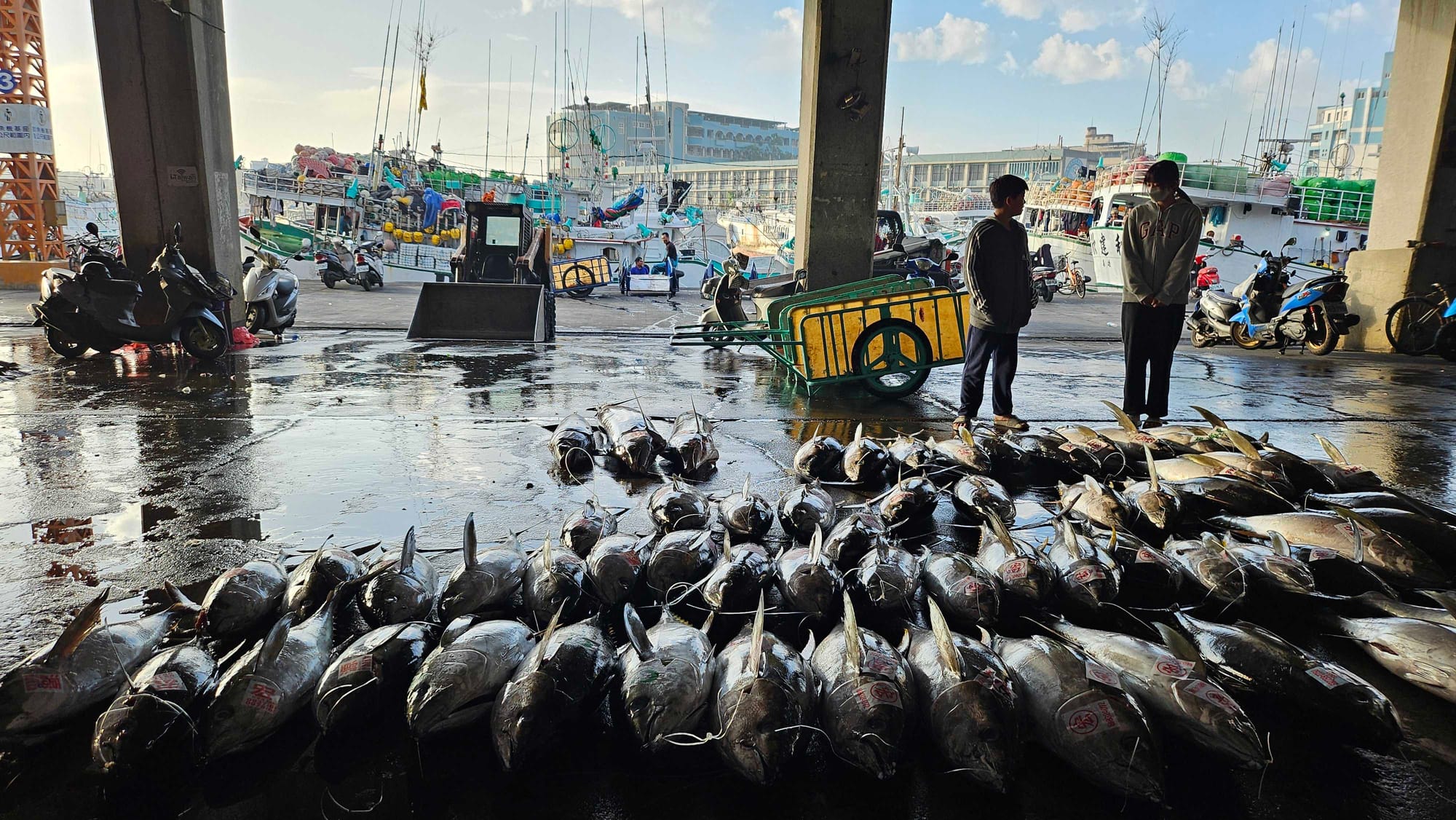Adrian Basar did not want to become a distant-water fisherman. With 22-hour workdays and pay of around 450 dollars per month, it’s not the most glamorous—or fulfilling, or generally safe—job. But Basar took it to help support his seven-sibling family. One of them is currently in university, studying mathematics.
“I support them so they can go to school,” Basar told me, speaking in Indonesian through an interpreter. I met him at a major seafood industry conference last month, where he and another fisherman had come to tell corporate executives about their lives on the ships.
“I took these steps because I figure, if I can support them, they can get a better education than I did,” he said.
Basar is part of a distant-water fleet of Indonesian migrant fishermen who work for Taiwan’s massive fishing market. They fish thousands of pounds of tuna that is sold all over the world, including in some cases to U.S. consumers.

